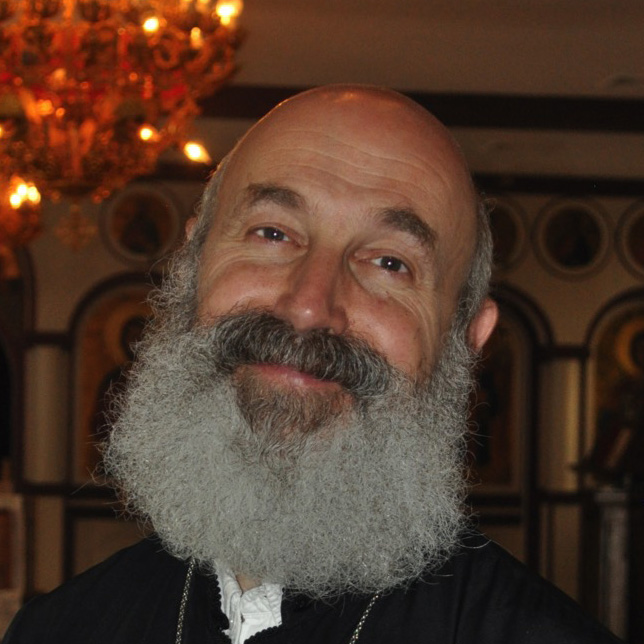Fr. Yannadios and the Talanton
September 1 marks the new ecclesiastical year. In the course of the next twelve months, the Church celebrates, through cycles of fasting and feasting and the daily assigned services and readings, the whole history of mankind’s creation, fall from God, and ultimate salvation in Christ, which has come about within history up to the present day.
At the beginning of each liturgical day, in Orthodox monasteries throughout the world, the monks and nuns are called to worship with the ringing of bells and the striking of the talanton. The talanton is a long, wooden plank, which is held over the shoulder and is struck with a wooden mallet by the monk or nun as they walk around the courtyard of the monastery, calling all the brothers or sisters to finish their assigned tasks and make their way to the main church for the liturgical services held in common. Even the manner of the striking of the talanton has a particular meaning. The rhythmic beat that is struck recalls the words of God in the garden of Eden as he searches for Adam and Eve who have just eaten the forbidden fruit and are in hiding. In Greek, it sounds like this: Adam pou ei; Adam pou ei; Adam, Adam, Adam pou ei; Adam, where are you?
There is a story of an old monk from the monastery of Simonopetra on the Holy Mountain. The monk’s name was Fr. Yannadios. Old Fr. Yannadios was one of the elderly fathers who had already been at the monastery for decades when the new brotherhood arrived with Elder Aimilianos from Meteora in the early 1970s. As time went by, most of those first fathers passed on to their eternal rest, but Fr. Yannadios clung to this life. Finally he was confined to his cell and bed and was bed-ridden for six months. Two of the younger brothers attended to him each day in his cell.
One day, when they looked in on him, he was not there in his cell. It happened to be August 31, the last day of the liturgical year. Then, all over the monastery, the monks heard the talanton being struck, calling the monks to worship. [Sound of talanton being struck rhythmically] But it was an hour before vespers, and still too early for them to be called. They all came out into the courtyard to see who was doing this. There stood the old Fr. Yannadios, holding the long wooden plank over his shoulder and striking it with the wooden mallet in his other hand. When all the monks had gathered, he gave away the talanton and said out loud for them all to hear, “I am tired.” [Talanton sound continues, then stops]
Marvelling that he was out of bed but also smiling to themselves, thinking that their old brother was becoming a bit senile, they decided to go into the main church and begin the services early. During the course of the service, the two young cell attendants came into the great vespers and announced to all that old Fr. Yannadios had just died. Only then did they understand what had happened.
God had allowed him to know that he was about to die and had given him the strength to give this last message and service about the purpose of this life to his brother-monks. This life is given to us for repentance, to prepare for the next life. Striking the talanton, he was calling to an end his last day and hour here in this life, with the ending of the liturgical year, and proclaiming the beginning of his new life above, just as the Church was beginning again the acceptable year of the Lord.
This sign was recorded on Ancient Faith Radio, that you may believe that Jesus is the Christ and that, believing, you may have life in his name.

 Fr. Theodore Petrides
Fr. Theodore Petrides